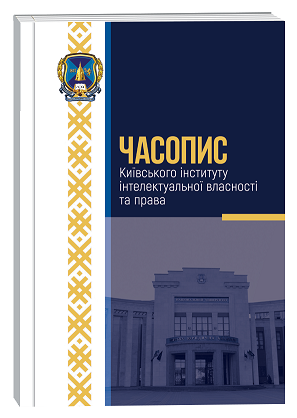EVOLUTION OF INTERNATIONAL PRIVATE LAW AND GLOBALIZATION
DOI:
https://doi.org/10.32782/chasopyskiivp/2023-3-5Keywords:
principles, international private law, universalization, positive lawAbstract
The article deals with modern trends in the development of international private law and its determinants. The author tracked the paradigm shift and development trends of this right over the last period and the impact of globalization and digitalization on it. The expansion of the scope of international private law in connection with the scientific and technical progress of mankind as a result of globalization and the need to unify the regulation of private relations in large areas was noted, attention was paid to the formation of the law of transnational companies, in particular in the contractual practice of international corporations and its spread through their structural formations to the countries of their location. In this aspect, attention is drawn to the epistemological aspects of international private law and its French, Polish, Anglo-American, German, Bulgarian, and Chinese doctrines. In addition, certain terms used in the positive right: "fundamentals", "community" were criticized as unacceptable due to their polysemy and imprecision. Both the first and the second are widely used in legal science, sometimes incorrectly. This leads to different interpretations and sometimes law enforcement. Modern law needs a more flexible legal mechanism based on digitization, where access to Internet networks is important. Therefore, on the basis of the software and its distribution, the formalization of legal forms of the participants of the turnover, in particular corporate ones, contractual regulation, settlements between the participants of the turnover of goods and banking services, relations with the commercialization of objects of intellectual property rights, etc. is universalized. On the basis of the above, it can be seen that international private law is changing and increasingly regulating material and legal relations, which due to the implementation of the provisions of international acts into the national system.
References
Засада. Академічний тлумачний словник української мови. Т. 1. URL: https://slovnyk.ua/index.php?swrd=%D0%B7%D0%B0%D1%81% D0%B0%D0%B4%D0%B8 (Дата звернення 20.07.2023)
Rudenko Oksana. Formation, development and modern state of private international law in the European Union. European Journal of Law and Public Administration. Vol 5, No 2 (2018). Pp. 34–46.
Про міжнародне приватне право Закон України від 23 червня 2005 року № 2709-IV : https://zakon.rada.gov.ua/laws/show/2709-15#Text (Дата звернення 20.07.2023)
Руденко О.В. Сучасні тенденції розвитку міжнародного приватного права ЄС. Науковий вісник Чернівецького університету : збірник наук. праць. Вип. 578: Правознавство. Чернівці : Чернівецький нац. ун-т, 2011. С. 56–60.
Цивільне право України : Загальна частина : підручник / за ред. О. В.Дзери, Н. С.Кузнєцової, Р. А.Майданика. 3-тє вид. перероб. і допов. К. : Юрінком Інтер, 2010.
Цивільний кодекс України : проєкт в редакції від 25 серпня 1996 р. Українське право. 1997. № 1.
Цивільний кодекс України: Кодекс України, Закон, Кодекс від 16.01.2003 № 435-IV (Редакція станом на 10.06.2023) . URL: https://zakon.rada.gov.ua/laws/show/435-15#Text (Дата звернення 20.07.2023)






